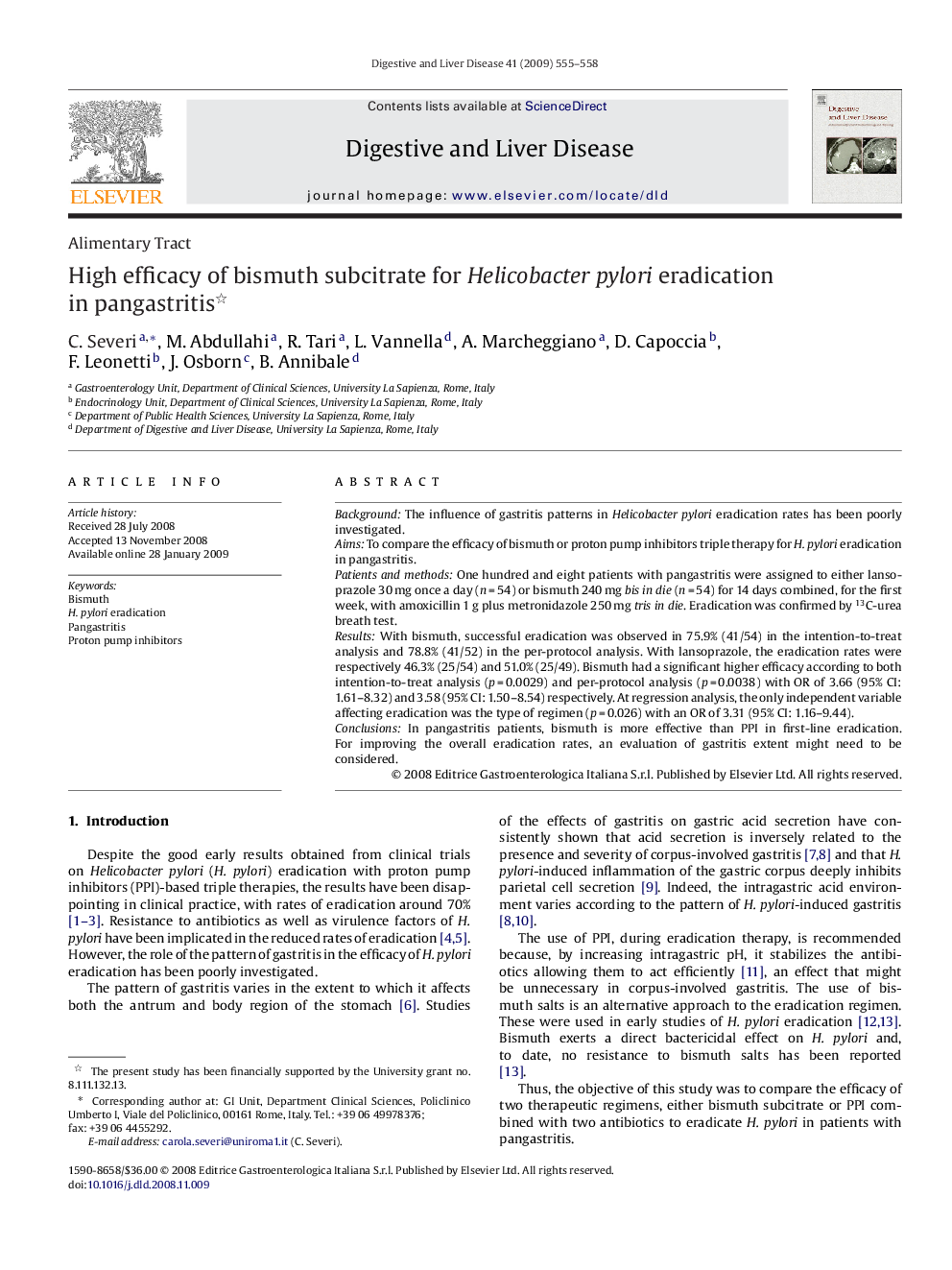| کد مقاله | کد نشریه | سال انتشار | مقاله انگلیسی | نسخه تمام متن |
|---|---|---|---|---|
| 3265478 | 1207815 | 2009 | 4 صفحه PDF | دانلود رایگان |

BackgroundThe influence of gastritis patterns in Helicobacter pylori eradication rates has been poorly investigated.AimsTo compare the efficacy of bismuth or proton pump inhibitors triple therapy for H. pylori eradication in pangastritis.Patients and methodsOne hundred and eight patients with pangastritis were assigned to either lansoprazole 30 mg once a day (n = 54) or bismuth 240 mg bis in die (n = 54) for 14 days combined, for the first week, with amoxicillin 1 g plus metronidazole 250 mg tris in die. Eradication was confirmed by 13C-urea breath test.ResultsWith bismuth, successful eradication was observed in 75.9% (41/54) in the intention-to-treat analysis and 78.8% (41/52) in the per-protocol analysis. With lansoprazole, the eradication rates were respectively 46.3% (25/54) and 51.0% (25/49). Bismuth had a significant higher efficacy according to both intention-to-treat analysis (p = 0.0029) and per-protocol analysis (p = 0.0038) with OR of 3.66 (95% CI: 1.61–8.32) and 3.58 (95% CI: 1.50–8.54) respectively. At regression analysis, the only independent variable affecting eradication was the type of regimen (p = 0.026) with an OR of 3.31 (95% CI: 1.16–9.44).ConclusionsIn pangastritis patients, bismuth is more effective than PPI in first-line eradication. For improving the overall eradication rates, an evaluation of gastritis extent might need to be considered.
Journal: Digestive and Liver Disease - Volume 41, Issue 8, August 2009, Pages 555–558